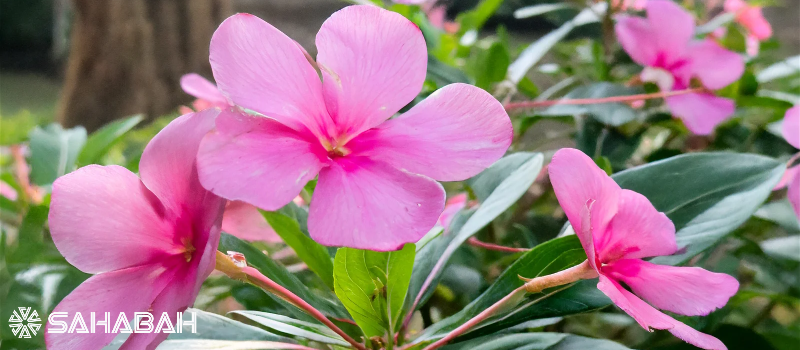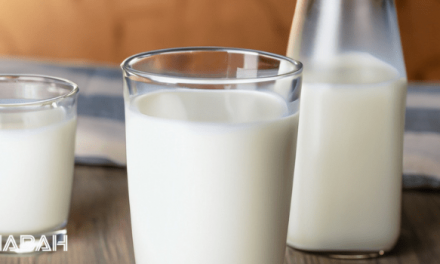Dextrose is an extremely common ingredient used in a wide variety of foods and beverages as a sweetener, preservative, stabilizer, anti-caking agent, and binding agent. It is found across categories like baked goods, candy, chocolate, dairy products, canned fruits and vegetables, jarred sauces, powdered drink mixes, and even certain medications. However, many Muslim consumers have doubts regarding the halal compliance of such a ubiquitous additive.
This comprehensive guide on dextrose aims to address concerns from the Muslim community by exploring what dextrose is, reasons for halal certification importance, how to properly identify and source legitimately halal-certified dextrose products, considerations when implementing dextrose as an ingredient, potential substitutes, and reasons why halal compliance of common food additives really does matter for consumers.
What Exactly is Dextrose and Why Do Muslims Care About Its Halal Status?
Dextrose goes by various names like glucose and corn sugar. Fundamentally it is a simple sugar, an optical isomer derived from plants like corn, wheat, rice, potatoes and arrowroot among other starch-based agricultural crops. As the most widely available simple sugar, it is highly versatile appearing across categories from baked goods to candy production within food applications.
The concerns around dextrose halal certification stem from the strict dietary guidelines adhered to by observant Muslims, where products must meet very specific standards around permissible ingredient sourcing and avoidance of any pork, alcohol or other contamination forbidden under Islamic law. This not only includes end products like food or medicine, but also applies to various ingredients and additives used in manufacturing and processing stages.
While dextrose as a plant-derived sugar may seem innocuous at first glance, the fact it goes through extensive refining processes leaves room for doubt about contamination. Some mass manufacturers may potentially introduce animal-bones or skin, alcohol-based enzymes, or other non-halal ingredients even in trace amounts during certain steps of production. This necessitates proper halal certification conducted by accredited agencies to guarantee standards were met.
Kosher certification is more commonplace but does not fully satisfy Muslim halal requirements which extend beyond simply avoiding pork to preclude alcohol-containing flavoring and certain cattle-derived ingredients permissible under kosher guidelines. So specific halal certification is still needed rather than relying solely on kosher approval for food labeling.
How to Identify and Source Legitimately Halal Certified Dextrose Products
For Muslim consumers and food producers seeking halal-compliant dextrose, useful search terms include “halal dextrose”, “halal glucose”, or “Muslim dextrose”, potentially paired with modifiers like powder, monohydrate or anhydrous depending on the preferred format. Supplier websites should indicate clear halal certification through symbols from accredited agencies like the Islamic Food and Nutrition Council of America (IFANCA) or the Muslim Consumer Group’s Crescent M symbol.
Product descriptions may also state sourcing from verified halal plant material rather than any bone char or animal derivatives. Contacting the manufacturer directly can help clarify certification standing or manufacturing processes if any doubt still remains.
Seeking out sellers specializing specifically in halal ingredients and related products helps streamline the vetting process. For example, finding halal-approved supplements, sweeteners or thickening starch from the same vendor reinforces their focus on Muslim religious needs during sourcing and indicates established supply relationships with halal manufacturers.
What Are the Key Points to Evaluate When Assessing or Implementing Halal Dextrose?
Familiarity with the basic properties of dextrose allows food producers to appropriately leverage its sweetening power, moisture retention capacity, texture enhancement, anti-caking abilities or fermentation fuel. But religious permissibility remains the overriding factor, hence verifying halal certification of any sourced dextrose through official seals, manufacturer declarations, or follow-up contact.
Moreover when actually implementing dextrose within commercial scale production, the equipment and processes themselves require halal integrity to prevent cross-contamination. Muslim consumers require assurance that each upstream step meets appropriate standards, not merely the final ingredient itself.
Pricing does remain a factor as halal certification and compliant sourcing requires strict oversight. Halal-approved dextrose tends to cost 10-25% more than uncertified conventional versions. However the rapidly growing global Muslim population makes sustainably-sourced halal products a worthwhile segment both financially and ethically. Also bulk purchases and establishing long-term supply relationships can help mitigate additional expenses.
Potential Halal Substitutes If Dextrose Sourcing Raises Concerns
Some Muslim consumers or food producers with lingering uncertainty around specific dextrose sources seek alternative sweeteners or substitutes perceived as more reliably halal. However viable alternatives must replicate certain physical properties and functionality.
For example, date sugar made from dried dates offers a popular natural choice but may not bind or stabilize as effectively in certain products. Rice syrup provides similar viscosity and sweetness levels to dextrose solutions but still requires checking manufacturing protocols for halal compliance. Other alternatives like fruit juice concentrates can replace sweetness yet lack key traits like fermentability.
Ingredients approximating dextrose properties most closely include granulated white sugar (sucrose) derived from verified halal sugarcane sources or brown rice syrups. Manufacturers continue innovating viable plant-based substitutes for common additives to satisfy religious needs. But as with any product with halal certification claims, sourcing transparency and supply chain auditing remain crucial.
Why Does Halal Compliance in Mass-Produced Ingredients Like Dextrose Really Matter?
Some consumers wonder if strict halal adherence makes an actual tangible difference for such ubiquitous additives like corn-derived dextrose where animal content seems unlikely. However even trace contamination remains unacceptable for religiously observant Muslims. For example Chengda Biotechnology Co. recently lost IFANCA certification for a type of food additive after an audit revealed their supplier used alcohol during processing.
Public transparency around such incidents provides valuable awareness for consumers but also keeps manufacturers accountable to uphold claimed standards rather than resort to undisclosed corner cutting. This builds trust in labeling claims which simplifies selection for Muslim shoppers. Unscrupulous vendors risk reputation damage and losing a loyal niche customer segment by concealing haram or doubtful ingredients solely for marginal profit gains.
More companies recognize the relevance of 1.9 billion potential Muslim customers globally. Responsible halal compliance and associated product certification facilitates access to this rapidly growing consumer market. And consumer-driven scrutiny with demands for transparency and accountability motivate continuous improvement among manufacturers aspiring towards higher integrity standards industry-wide.
In conclusion, this guide around issues of halal dextrose certification aimed to highlight precisely why compliance matters to such a large, devout and conscientious consumer community across food, beverage, pharmaceuticals and more. Verifying ingredient permissibility upholds religious freedoms and values within a broader climate of inclusion for diverse societies.
Frequently Asked Questions – Is dextrose halal?
Yes, dextrose can be considered halal, especially if it is derived from plant sources and is not contaminated with any haram (forbidden) substances.
What is dextrose and its usage in food?
Dextrose is a simple sugar that is commonly used in food and beverages as a sweetener or a source of carbohydrates for quick energy.
How can I find a halal-certified dextrose supplier?
You can search for a halal-certified dextrose supplier using online platforms or by contacting halal certification agencies. It is important to verify the halal certification before making a purchase.
What is the manufacturing process of halal-certified dextrose monohydrate?
The manufacturing process of halal-certified dextrose monohydrate typically involves extracting glucose from plant-based sources such as corn or wheat, followed by purification and crystallization to obtain the monohydrate form.
What should I consider when sourcing halal dextrose for my products?
When sourcing halal dextrose, it is important to ensure that the supplier provides valid halal certification for the product and that the dextrose does not come into contact with any non-halal substances during production and storage.
Is dextrose anhydrous considered halal?
Dextrose anhydrous can be considered halal if it is derived from permissible sources and is free from any haram ingredients or contaminants.
What are the popular uses of halal dextrose in food and beverages?
Halal dextrose is commonly used in the food and beverage industry as a sweetener, a source of energy, a bulking agent, and in various food processing applications.
What is the difference between halal and kosher certification for dextrose?
The difference between halal and kosher certification for dextrose lies in the specific religious requirements and practices associated with each certification. While both certifications ensure that the product is permissible according to religious guidelines, the criteria for obtaining each certification may vary.
Can I request details and pricing about halal dextrose from a supplier?
Yes, you can request details and pricing about halal dextrose from a supplier by contacting them directly or through their online platforms. Be sure to inquire about the halal certification and the source of the dextrose.
How can I ensure that the dextrose I use in my products is halal?
You can ensure that the dextrose used in your products is halal by working with reputable suppliers who provide valid halal certification and by conducting thorough vetting of the product’s sources and manufacturing processes.





